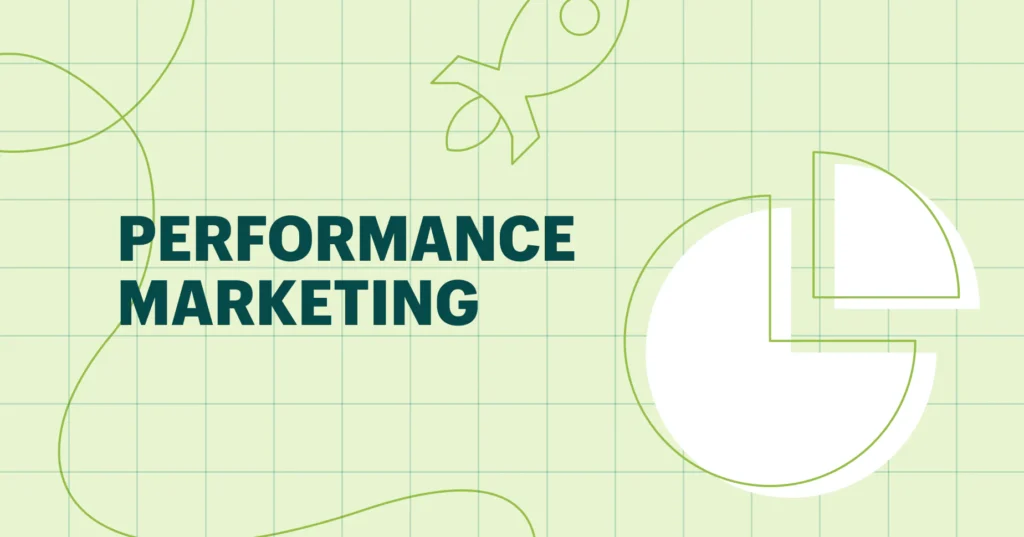Performance marketing is a form of digital marketing where advertisers pay marketing companies or advertising platforms based on how well their ads perform. Instead of paying for ad placements upfront, advertisers pay for specific actions, such as clicks, conversions, sales, or other measurable outcomes. This approach ensures that marketing efforts are directly tied to business results, making it a cost-effective strategy for many businesses.

Key Components of Performance Marketing
- Pay-Per-Click (PPC): Advertisers pay each time a user clicks on their ad. This model is common in search engine advertising and social media ads.
- Affiliate Marketing: Advertisers partner with affiliates who promote their products or services. Affiliates earn a commission for each sale or lead generated through their marketing efforts.
- Cost-Per-Acquisition (CPA): Advertisers pay for specific actions, such as a sale, a lead, or a sign-up. This model ensures that the advertiser only pays when a desired action occurs.
- Native Advertising: Advertisements are integrated into the content of a website, making them appear more natural and less intrusive. Payments are often based on user engagement or conversions.
- Retargeting: Ads are shown to users who have previously visited the advertiser’s website but did not complete a desired action. This helps in converting potential customers who showed initial interest.
Benefits of Performance Marketing
- Cost-Effective: Advertisers only pay for actual results, which can lead to better ROI.
- Measurable: Clear metrics and KPIs make it easier to track performance and adjust strategies accordingly.
- Targeted: Ads can be highly targeted based on user behavior, demographics, and other factors, increasing the chances of conversion.
- Flexible: Advertisers can quickly adjust their campaigns based on performance data to optimize results.
Challenges of Performance Marketing
- Ad Fraud: Fake clicks or conversions can inflate costs without delivering real value.
- Complexity: Managing performance marketing campaigns can be complex and require specialized knowledge and tools.
- Competition: High competition in certain industries can drive up costs and make it harder to achieve desired results.
Tools and Platforms
- Google Ads: One of the most popular PPC platforms, offering a wide range of targeting options and analytics tools.
- Facebook Ads: Provides powerful targeting capabilities based on user data and behavior.
- Affiliate Networks: Platforms like ShareASale, CJ Affiliate, and Rakuten Advertising connect advertisers with affiliates.
- Retargeting Platforms: Tools like AdRoll and Criteo specialize in retargeting campaigns to bring back potential customers.
Performance marketing requires continuous monitoring and optimization to ensure that campaigns are delivering the best possible results. By leveraging data and analytics, advertisers can refine their strategies and achieve their marketing objectives more efficiently.
4o
